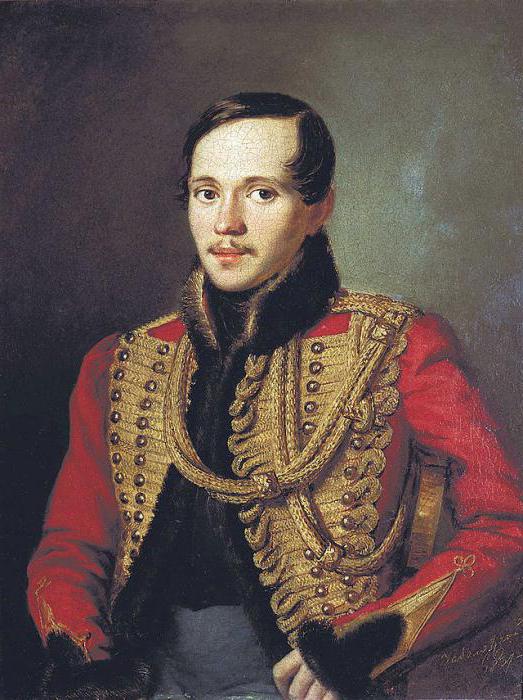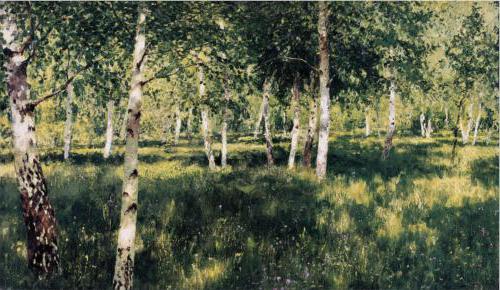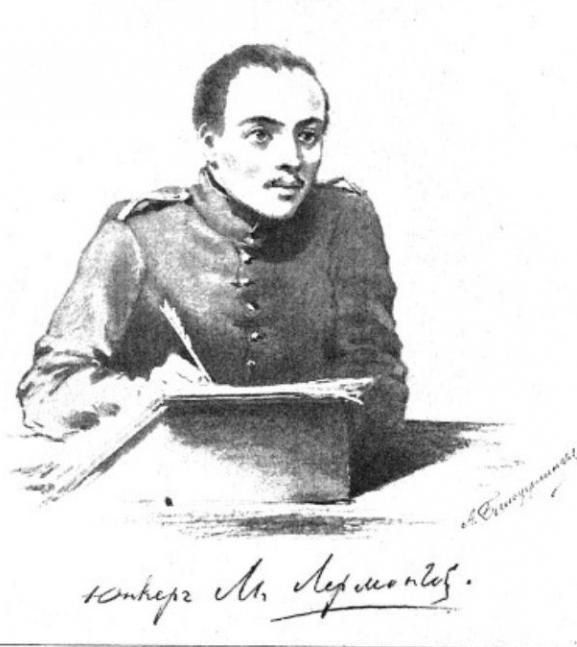Lyrical heroes of Lermontov's poetry. Features of the lyrics of M. Yu. Lermontov
A feature of the work of Mikhail Yurievich (yearslife - 1814-1841) is that the lyrical heroes of Lermontov's poetry are internally united. Gradually they change, but this transformation is insignificant in comparison with the development of images in other poets of the XIX century. In the last period of Lermontov's creative work, the character of a person who is tired of life, which is completely different from the character of the earlier poems, is increasingly shown. But nevertheless these lyrical heroes of poetry of Lermontov are closely connected. Continuity is due to the preservation of the main themes, motifs, piercing the poet's work and forming the image of the hero.

Romantic hero
Along with the early work of Alexander SergeevichPushkin and Zhukovsky's poetry, Lermontov's lyrics, marked the rise of romanticism in our country. It is due to the fact that the hero of Mikhail Yurievich is an exalted dreamer. He is endowed with all the features typical for a romantic: it is a sufferer, a fighter, a poet, a rebel, a prophet, a lover. Such are the lyrical heroes of Lermontov's poetry at all stages of his work.
Loneliness theme
Notes of isolation from everyday life, especiallysound strongly in the image of the romantic hero Mikhail Yurievich. Loneliness acquires in its works various variations: a love that arises in a variety of works on the subject; imprisonment in prison; the isolation of man in the world around him.
In many works ("And boring and sad ...""," The Duma ") there is an image connected with the general motive of loneliness of the modern Lermontov generation.We encounter here one of the most important problems that Mikhail Yurievich touches upon is a reflection that destroys the soul, a disease that, according to the poet, kills the generation and closes a person, condemning a person to loneliness.

Motive of death
The best feelings that exist in people with a voicereason disappear. Reflection is deadly for faith and feelings. The author attributes himself to the generation of the "stray". The lyrical hero of Lermontov's poetry is compared with "a ripe fruit till the time". The motif of early death is traditional in romantic literature, but Mikhail Yuryevich brings a fresh idea to this topic: he is not talking about physical death, but about the death of a feeling caused by unbelief, lack of struggle and purpose. We are "shamefully indifferent" to evil and good, and to the authorities - only "despicable slaves", as he writes.
The motive of the struggle
This topic is the most important for a romanticliterature not only in our country, but all over the world. In Mikhail Yurievich, she gets an original development. Struggle is the essence, the basis of characters, which are lyrical heroes of Lermontov's poetry. The composition of Mikhail Yurievich "Parus" is a poem in which a person in the form of a ship fights with a hostile element. But it is necessary to stop the storm - and he begins to "ask" and look for it, because he is not looking for happiness, but for overcoming it.
Opposing the external and internal world

Internally contradictory lyric heroes of poetryLermontov, the composition of which we are now writing. The discord within a person, originating from a destructive, dark reflection, can not but breed conflict and conflict in his soul. In one of the poems titled "How often surrounded by a multicolored crowd ..." the author contrasts the real outside world, concealing under a kind mask a indifference, the rebellious inner world of the lyric hero. There are "soulless images" of people.
The metaphors of the masquerade in general and the masks in particular appear in the poet very often. They symbolize the lack of spirituality, the falsity of the world, in which the lyrical heroes of Lermontov's poetry are forced to exist.
The theme of unbelief and faith

Closely related to the motive of the struggle and the theme of unbelief andfaith. The lyrical hero of Lermontov's poetry reproaches God for the fact that the world is imperfect. Romantic and demonic characters of the poems "Mtsyri" and "Demon" deny the Creator, while not taking the very world in which they live. But, seeing precisely in the absence of ideals, in disbelief the reason for such a world outlook, Mikhail Yuryevich could not but lead eventually to an agreement with the Creator of a romantic person. Therefore, the lyrical hero of Lermontov's poetry comes to a compromise with the heavens.

Such a pacifying beginning becomeswork "When the yellowing field is worried ..." nature. The idea of the hero "plunges into a dream," thereby freeing his feelings, and the love of the "peaceful edge" gives him the opportunity to "see" the Creator.
Napoleon
Let's continue our work. The lyrical hero of Lermontov's poetry in some works is Napoleon. The image of a rebel who has experienced both the deepest fall and the peak of power is generally traditional for romantic lyrics in the Russian tradition. For Lermontov in Napoleon (and also in the image of Byron), the main features of the romantic hero were combined: flight, rebellion, struggle, expulsion and loneliness of the individual.
Mutual relations of the crowd and the poet
Coming to the end of our work. The lyrical hero of Lermontov's poetry, like other authors, opposes the masses. Traditionally, in Russian literature, the relationship between the crowd and the poet was seen as a conflict that is inevitable. This topic occupied an important place in the work of many writers, and always the image of the poet himself was drawing closer to the image of the lyrical hero. Lermontov is no exception, but he has a very peculiar solution to this complicated conflict.
Traditionally, the crowd was defined as "soulless","deaf", "mob". It was characterized by a spiritual lack of spirituality, self-interest, and the image of the poet was close to his features to the exile, the singer, the prophet. Otherwise, this conflict Lermontov. On the one hand, he portrays the crowd more respectfully, saying that the people are "crushed" by torture and loss. On the other hand, in the 1838 work called "The Poet", he holds the idea that every age generates "his" prophet, one with the crowd, which he needs and that he needs. "Rust", eroding the blade of talent, calls Lermontov contempt for the people.
A new image of a simple, tired personappears in such poems as "Neighbor", "Testament", "Homeland", "Valerik", and others. With earlier characters, this lyrical hero of M. Lermontov's poetry is connected by deep roots. All changes in his features are subordinated to inner unity at the subconscious level.
</ p>




